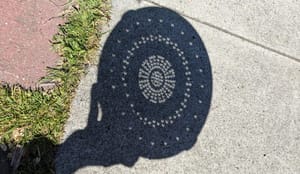David Weinberger reports on his talk to a bunch of librarians. The discussion eventually turned to “whether there can be librarians without books,” D.W. says.
The librarians proposed a continued role for themselves as “gatekeepers of information.” Weinberger is unconvinced: If information is widely abundant, who needs gatekeepers?
Why bother asking the gatekeeper for access to the grain warehouse of there’s manna lying around all over the ground, D.W. says. OK, said the librarians, but we’ve got the good information — all that stuff on the internet is lower quality. They didn’t say, but should have: Why pay for tickets to the ball park if you can watch the game on TV for free? Because it’s more fun to go to the ball park and do the wave with 50,000 other baseball nuts than it is doing the wave at home, alone.
Weinberger countered that in a world of abundance, you don’t need to have the best — “good enough” is good enough.
What he misses — and this is odd for someone so sophisticated about knowledge management and information as D.W. is — is that information is not, like manna, generic. If you’re hungry, a lump (chunk? blob?) of manna is as good as anything else. But if you need to know the way to San Jose, directions to Albuquerque aren’t going to do you much good. Information is valuable precisely to the degree that it’s specific, accurate, and timely — and to the degree that you can find it.
OK, now to my point: With the burgeoning amount of information available — online and elsewhere — just finding, organizing, and managing that information is becoming a hugely difficult task. Search engines address only one part of the problem. A fair amount of sophistication and education is needed to use “knowledge management” tools, to organize information, to find one’s way through well-organized information. A role for librarians? Sure — as information managers. I think this will become increasingly clear over the next couple of years.
And — isn’t it a bit premature to start talking about a world without books, anyhow? They’re still remarkably effective information storage, retrieval, and display devices.
